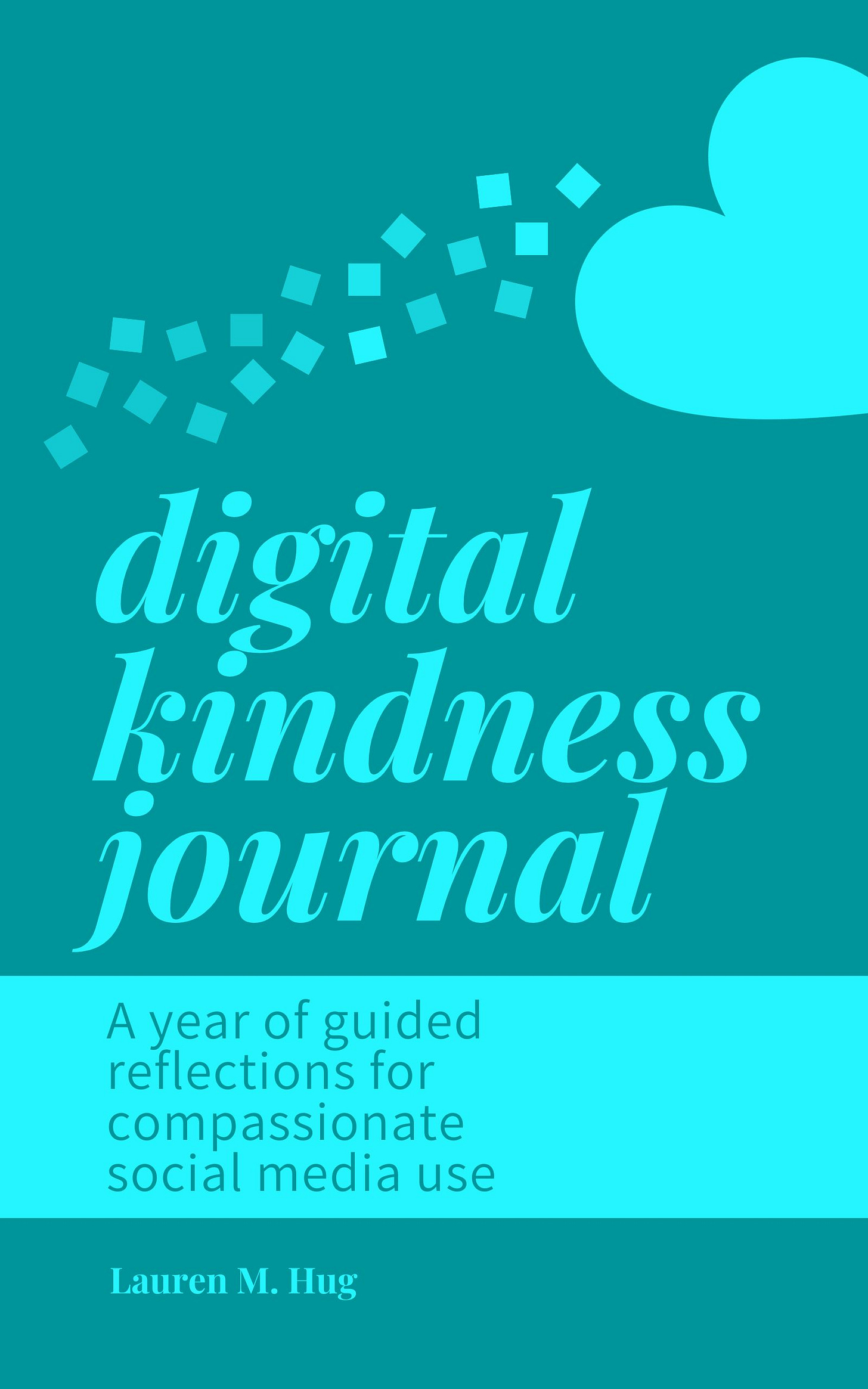My birthday fell on the solar eclipse this year, which also happened to fall on a new moon. I don’t know a ton about astrology, but having these three things occur at the same time seemed unusual and significant to me, so I looked to the internet for interpretations and ideas for making the most of it.
The general digital consensus is they combine to signify a year of critical changes and major lifestyle transitions. Some sources even warn that a solar eclipse birthday may indicate an identity crisis. (Eek!) This actually resonated with me because I’ve been in a prolonged period of contemplation about the future of my business as well as my work equipping people to use social media to co-create a world where everyone (and the natural world) thrives.
I decided to honor this transformational energy with two short trips during April. I spent my actual birthday visiting Glenwood Springs, Colorado, staying at a farm, enjoying hikes in stunning natural environments, petting alpacas, and soaking at a hot springs while viewing the eclipse at 68% totality. A few weeks later, I traveled to Santa Fe, New Mexico, enjoying art and quality time with my daughter.
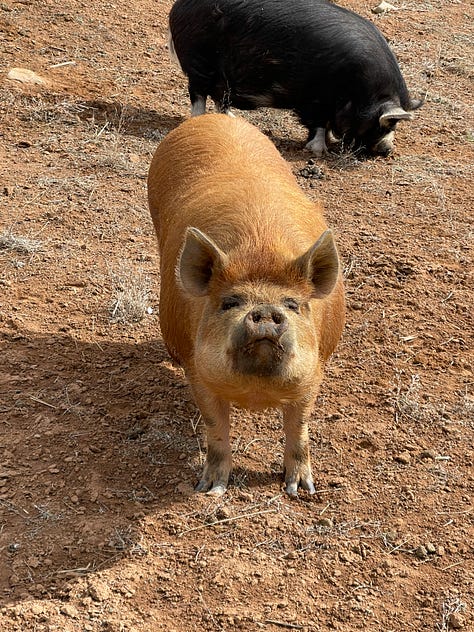
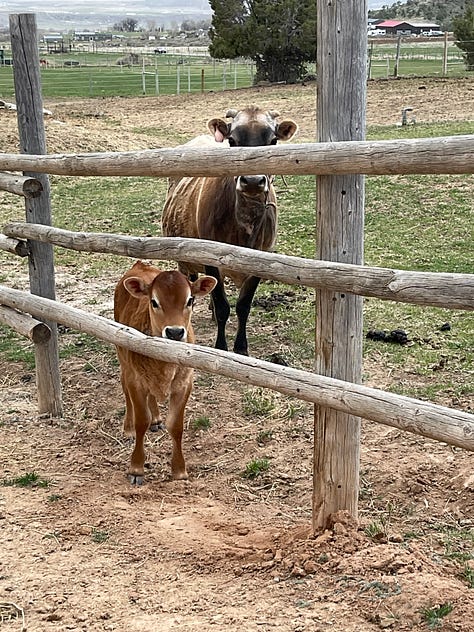
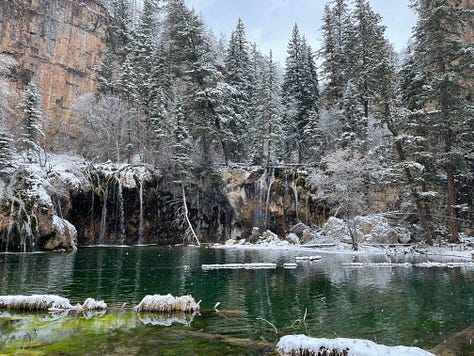
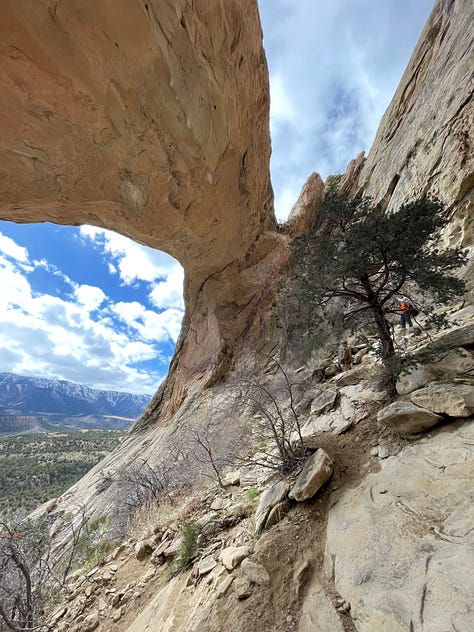





I also took the entire month of April off from work. Completely off. I blocked my calendar. I rescheduled appointments. I said no to events. I stayed off social media (mostly). I didn’t write anything related to my business or do any prep or practice on my flock of talks.
It’s the first time in my entire adult life I’ve done anything like that. I didn’t take a gap year after high school or even a few weeks off between jobs. From the age of 16, I perpetually propelled myself forward on my productivity path — completing requirements for the career I (thought) I wanted to pursue and making and saving money for the future life I (thought) I wanted to live.
I’ve always felt compelled to be productive. Work was vital. Making progress on a path was necessary. It was okay if the path changed direction slightly — like deciding to go to law school after realizing there was no way I could afford the life I thought I wanted on the salary of a journalist — but I had to be moving forward toward some goal.
Standing still or, worse yet, taking steps backwards, were signs of laziness or failure in the value system I had internalized.
I’ve written before about where those beliefs led me — into a state of constant overwhelm, struggling with anxiety, and searching for a sustainable way to care for my kiddos, participate in my community, and engage in meaningful professional pursuits.
Giving myself permission to slow down allowed me the space I needed to better understand why rest is so elusive for me (and for so many of us).
It’s hard to rest in a world where value is measured by “productivity”
It was weird for me to intentionally go so long without producing anything. It was surprisingly uncomfortable. Sometimes I felt ill at ease and even experienced moments of panic about not being engaged in money making activities right then, even though I knew projects were already lined up on the other side of my rest break. I found myself frequently battling a negative internal monologue — “producer me” telling “desperately-needing-rest me” that I was lazy and pointless if I wasn’t doing something.
It’s rare for people to simply “rest” these days. We take vacations — an active thing where we leave our homes to go somewhere else and, often, though not always, do something different than we do in our every day lives. We take sabbaticals — another active thing where we leave work for a period to study or travel or pursue other interests. Neither are available to everyone since they both require a certain amount of money and work flexibility.
Based on some reactions I encountered when I told people I took time off to rest, it’s considered even more of a luxury than a vacation or a sabbatical. Some people raised an eyebrow and said things like, “must be nice” — a reaction I can’t remember ever having gotten when mentioning a vacation.
We used to have designated times for rest. They weren’t perfect, of course. Rest days for some meant work days for others. They were often built around religious practices not everyone observed and there was rarely accommodation for non-dominant religions or rest for any other reason. But there used to be a general belief that rest was necessary for a flourishing society.
Now, rather than creating societal conditions for well-rested humans and supporting people in designing lives that include adequate rest, we are inundated with a huge array of products and services that temporarily mimic the feeling and appearance of rest … plastering over how much we need the real thing.
Pondering the value of reestablishing a sabbath day (not related to any religion, but simply based on the need for rest) in The Day the World Stops Shopping: How Ending Consumerism Saves the Environment and Ourselves, journalist J.B. MacKinnon says, “Everyone needs to stop working. Everyone has to stop shopping. When we do, a form of time emerges that begins to remake the world.”
There is no rest from caregiving
Caregiving for a special needs young adult child takes far more energy and brain space than I realized. I knew the role added additional time and labor to my life, but with work off the table for a bit, I could see more clearly how much of my days and weeks are devoted to it and it alone.
Having taken this professional time off, I think I’m a better caregiver when I’m not also working, but I feel so much less like myself when it’s the only “productive” thing I’m doing. Caregiving isn’t one of my strengths. I caregive because my child requires supports to thrive, and in a professional landscape where caregiving is underpaid and not treated as a “real” career, it’s incredibly hard to find and fairly compensate a person who is skilled in this way — even on a respite basis. So the job falls to me.
I realize I’m incredibly fortunate to be able to work in my preferred field while also caregiving. As Ann Crittenden, former economics and financial reporter for publications like the New York Times and Forbes, once said: “For most companies, the ideal worker is ‘unencumbered,’ that is, free of all ties other than those to his job. Anyone who can't devote all his or her energies to paid work is barred from the best jobs and has a permanently lower life income.”
To create a world where everyone is able to both rest and do work meanigful to them, caregiving must be respected as a skilled and valued profession, and access to qualified caregiving embraced as a community responsibility.
What does any of this have to do with our digital world?
Social media pulls back the curtain on how many of us are struggling to survive society’s incessant demand to produce and consume ever increasing amounts. It’s exposing us to different stories about what it means to be human and demonstrating it is possible to create conditions and find situations where we thrive (instead of merely survive).
In its recent issue devoted to the positives of Gen Z, The Economist reported that this first generation of digitally networked humans is transforming the world of work. Equipped with knowledge of their bargaining power and multiple perspectives on what “success” and thriving looks like, they’re advocating for better working conditions, quitting for better opportunities, and choosing to take things slowly and enjoy life. What they learn from connecting via social media is starting to benefit us all.
For me, I’m not sure I would’ve ever considered taking that much-needed month off and laid the groundwork for doing it, if I hadn’t encountered so many voices talking about mental health, burnout, and the importance of longer periods of rest. Another example of how social media changes what we know about the world and what we believe to be possible.
While I know it’s unlikely that all of you are in situations where you have the ability to rest as much as you need, I’m hopeful that will change soon … and that together we can establish rest as something everyone deserves.
Digital Kindness Journal Prompt #10
List the people or accounts you INTERACT WITH most on social media.
Jot down anything you notice as you look over the list.
Answer this prompt wherever you journal or the comments section to participate in a community discussion. The Digital Kindness Journal: a year of guided reflections for compassionate social media use contains an outline for developing your personal digital kindness plan based on what you discover from 50+ prompts and a month of reflections on your social media activity and experiences.
MISCELLANEA
The “bear vs. man in the woods” social media discussion brought sobering statistics on violence against women into many people’s feeds. Reverend Candace Woods has an interesting take on how the “bear vs. man” trend is a form of public shaming of men who fail to uphold their duty of care to women. Read it here.
I was a guest on The Impossible Network podcast, hosted by Mark Fallows. Here's how he summarized my episode: “Lauren has focused much of her work on promoting digital kindness and encouraging healthier ways of interacting online. While social media often gets a bad rap, Lauren sees its potential for amplifying new voices and stories. Through her writing, speaking, and online presence, she inspires people to engage with more empathy, seek out different perspectives, and use digital platforms to spread uplifting content. In this wide-ranging discussion, Lauren opens up about her journey of unlearning default mindsets, coping with anxiety, and defining herself on her own terms. She shares her optimism about younger generations and her excitement about the creative potential made possible by emerging technologies. Throughout our conversation, Lauren emphasizes the centrality of human connection, both online and offline and advocates for young people to step forward and lead us into the future." Listen here!



